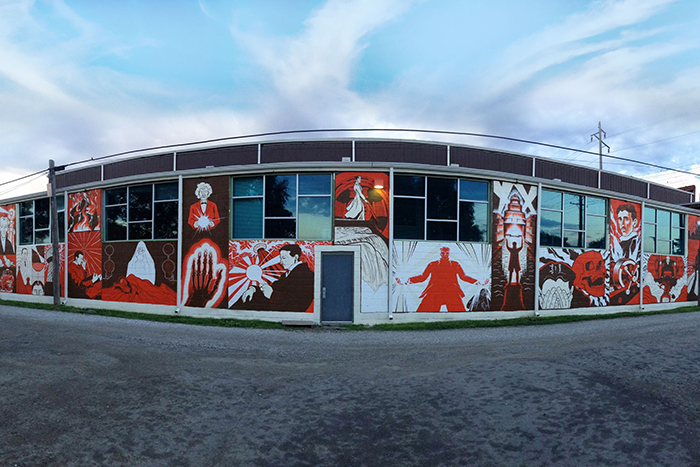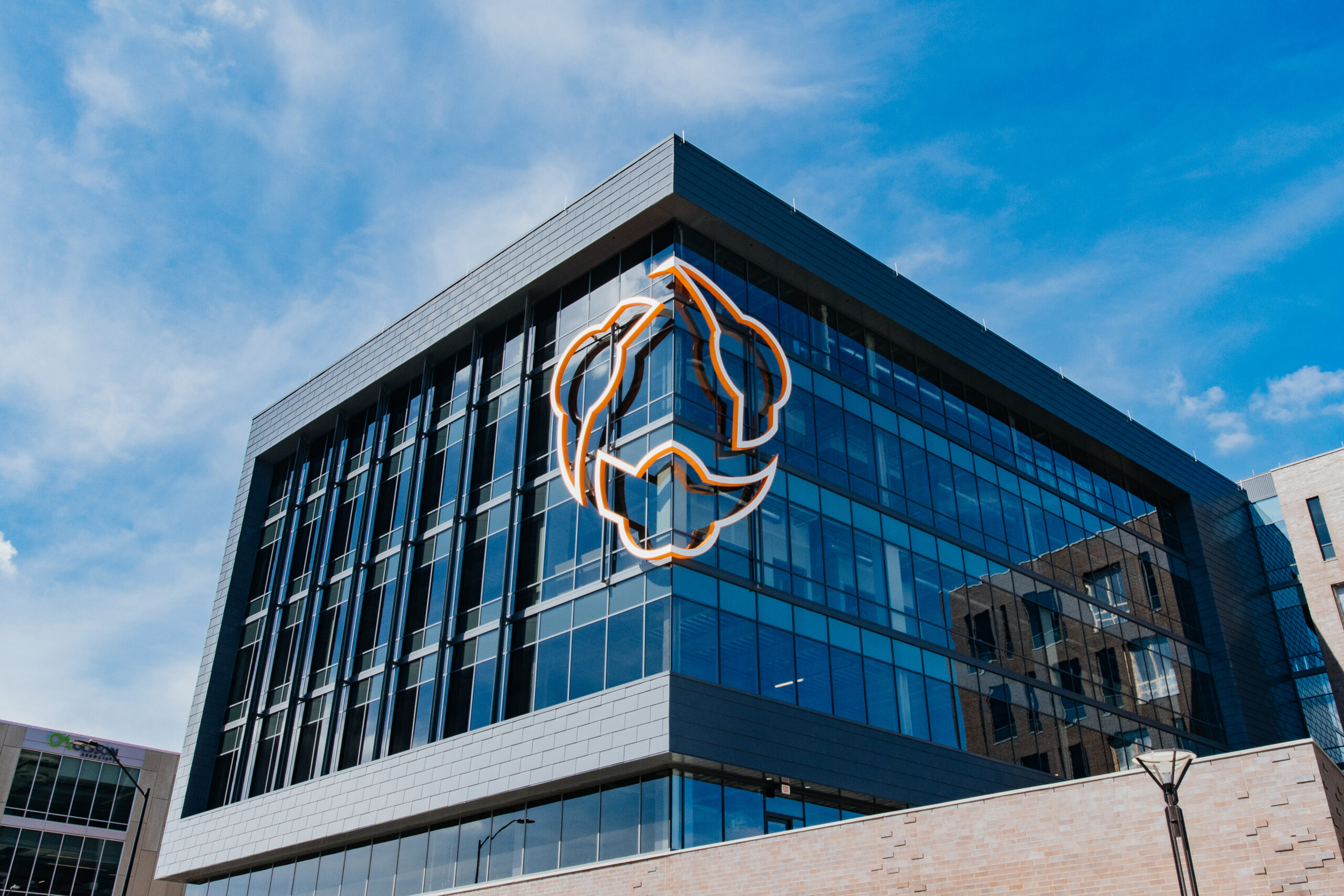Turbine Flats, a startup and small business collaborative near downtown Lincoln, started ten years ago out of necessity.
“There was a group of early-stage software companies that ended up roommates of sorts in a crummy, run-down building,” Co-Founder Matthew Wegener said. “We discovered how valuable it was to be in close proximity to one another, so when that building became unsustainable we made a conscious decision to scale that concept to the next level.”
An abandoned warehouse was acquired in 2007 and partially built out to house the original group of companies with some space for expansion and additional tenants.
“We finished out 11,000 square feet here, about twice the original location,” Wegener said. “We opened in January 2008 with five companies, and by March or April we had twelve and were completely full.”
In subsequent years, more space was built out — and quickly filled.
“We added 3,000 square feet in 2012 and another 3,200 in 2014,” Wegener said. “We added two more companies each time, but our existing tenants expanded and consumed most of that space. It’s always been a challenge to stay in front of the growth of our existing tenants.”
Early on, Wegener and his partners had a concept of what a full build-out would look like. It’s taken nearly ten years but that concept is now a reality.
“It’s eerie how it looks with the loft feel, bridge crane and glass front, just how we envisioned it,” he said. “The original concept didn’t have the mural on the side.”
The entire west side of the building is covered with a mural depicting various images of inventor Nikola Tesla. The inside includes individual and team offices, coworking space, and a variety of other amenities.
“There’s a lot of common space, a full gym, showers, washer and dryer, and a mother’s room,” said Executive Director Lisa Davis. “There’s a training room that seats 24, gallery space for larger events, and three conference rooms plus breakout space.”
Completion of the build-out is coinciding with the departure of Semcat, a tenant that grew from 10 employees in 2008 to over 40 following their acquisition by Applied Systems in 2015. This created some nervous moments.
“We were trying to complete this and fill it up before they moved out to maintain some stability,” Wegener said. “But it worked out well that they moved out before we finished. It was a vacuum in December but it filled up quickly.”
Among the more than 30 “Flatsians” are several companies that went through the NMotion Accelerator, including a number that came from outside Nebraska.
“One of the reasons I felt compelled to build Turbine Flats, whether real or perceived, is the value of fostering the entrepreneurial community and what it does from a Chamber of Commerce perspective,” Wegener said. “If you build it they will come to Turbine Flats, to Lincoln, to Nebraska to find roots and grow. This year’s NMotion cohort proved that model out.”
There is a diverse culture at Turbine Flats that extends beyond tech startups.
“We don’t want people to think we’re just a tech incubator,” Davis said. “There’s a wide variety of sizes and stages of companies, and we love to play host to new art and new music. It’s very diverse.”
Davis said they welcome events to host and new ideas.
“We encourage people to come in, take a tour and approach us with ideas,” she said. “We’re open to starting new things, meetups or events.”
As a veteran of the local startup community, how does Wegener view the current state of the ecosystem?
“Every community has its ongoing maturation struggles, and there’s definitely some of that in Lincoln,” he said. “We have to continue to grow and mature offerings and services. We can’t plateau, we need to keep driving.”
—
Rod Armstrong is Vice President of Strategic Partnerships for AIM in Lincoln, Nebraska. He is a regular contributor to Silicon Prairie News.







